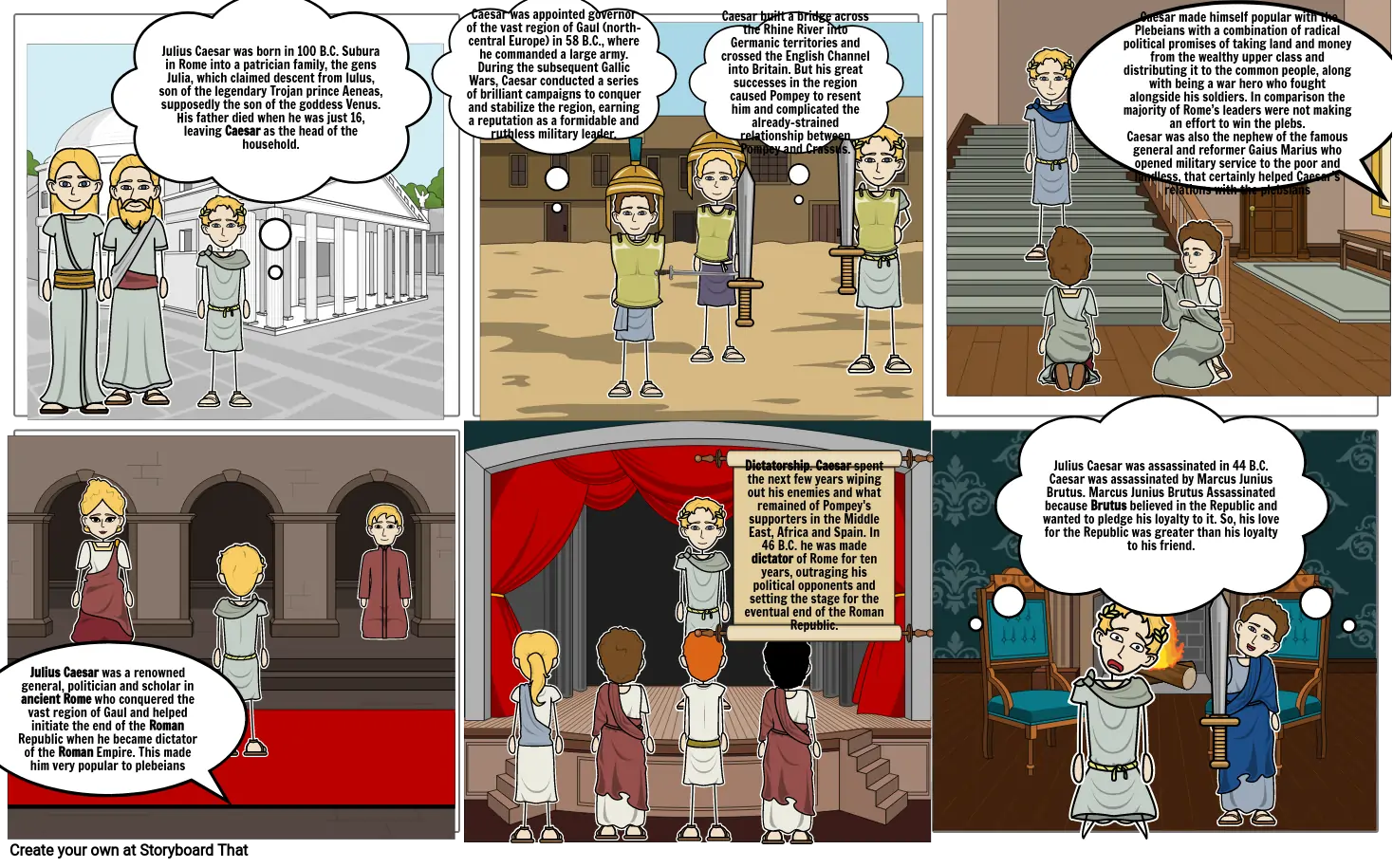Julius Caesar

Storyboard Text
- Julius Caesar was born in 100 B.C. Subura in Rome into a patrician family, the gens Julia, which claimed descent from Iulus, son of the legendary Trojan prince Aeneas, supposedly the son of the goddess Venus. His father died when he was just 16, leaving Caesar as the head of the household.
- Caesar was appointed governor of the vast region of Gaul (north-central Europe) in 58 B.C., where he commanded a large army. During the subsequent Gallic Wars, Caesar conducted a series of brilliant campaigns to conquer and stabilize the region, earning a reputation as a formidable and ruthless military leader.
- Caesar built a bridge across the Rhine River into Germanic territories and crossed the English Channel into Britain. But his great successes in the region caused Pompey to resent him and complicated the already-strained relationship between Pompey and Crassus.
- Julius Caesar was assassinated in 44 B.C. Caesar was assassinated by Marcus Junius Brutus. Marcus Junius Brutus Assassinated because Brutus believed in the Republic and wanted to pledge his loyalty to it. So, his love for the Republic was greater than his loyalty to his friend.
- Caesar made himself popular with the Plebeians with a combination of radical political promises of taking land and money from the wealthy upper class and distributing it to the common people, along with being a war hero who fought alongside his soldiers. In comparison the majority of Rome’s leaders were not making an effort to win the plebs.Caesar was also the nephew of the famous general and reformer Gaius Marius who opened military service to the poor and landless, that certainly helped Caesar’s relations with the plebsians
- Julius Caesar was a renowned general, politician and scholar in ancient Rome who conquered the vast region of Gaul and helped initiate the end of the Roman Republic when he became dictator of the Roman Empire. This made him very popular to plebeians
- Dictatorship. Caesar spent the next few years wiping out his enemies and what remained of Pompey's supporters in the Middle East, Africa and Spain. In 46 B.C. he was made dictator of Rome for ten years, outraging his political opponents and setting the stage for the eventual end of the Roman Republic.
Over 30 Million Storyboards Created
No Downloads, No Credit Card, and No Login Needed to Try!
